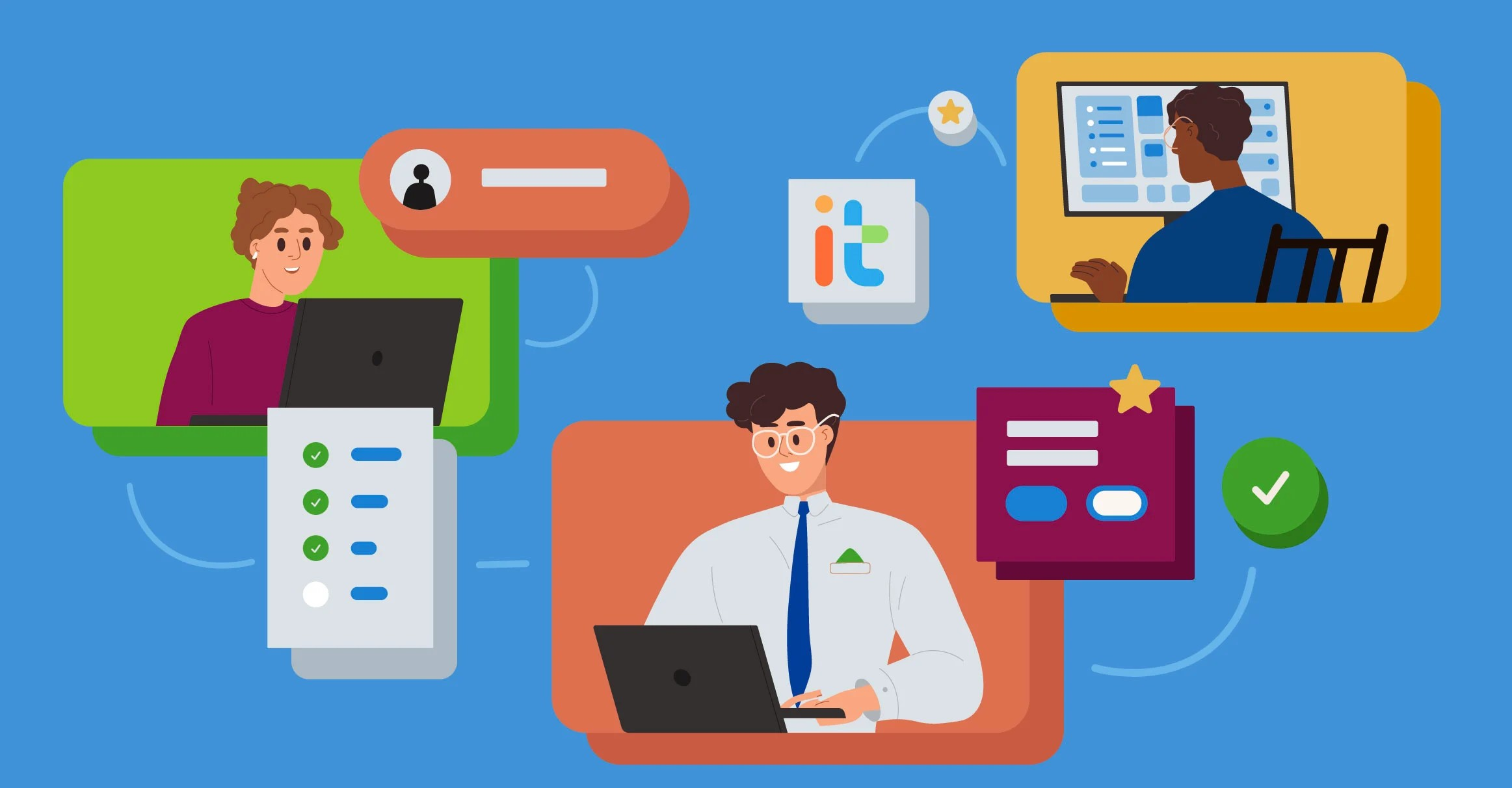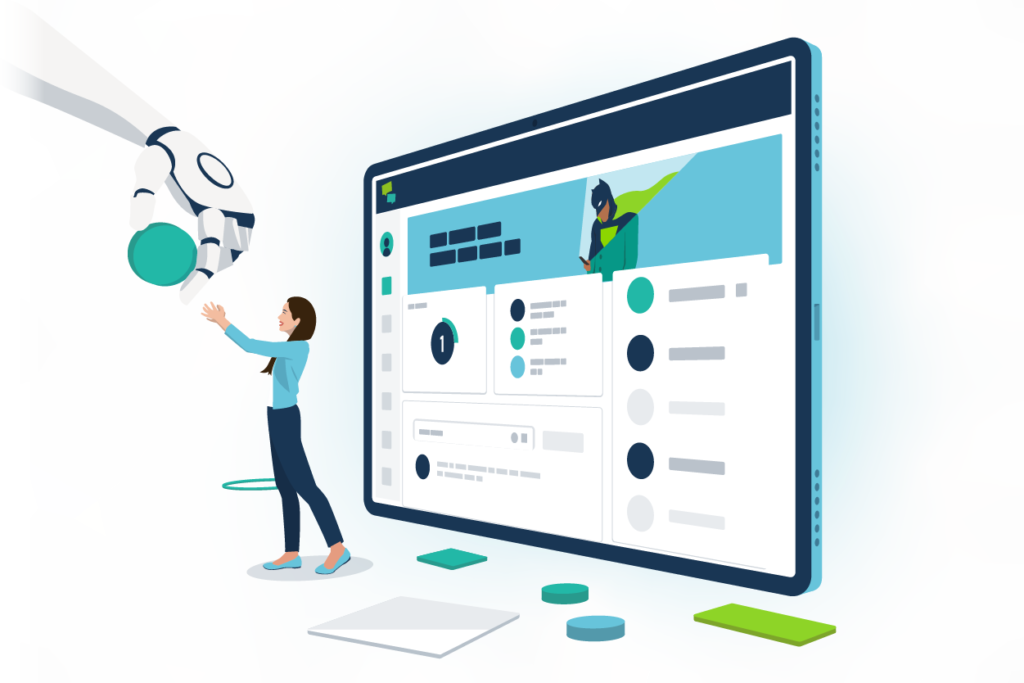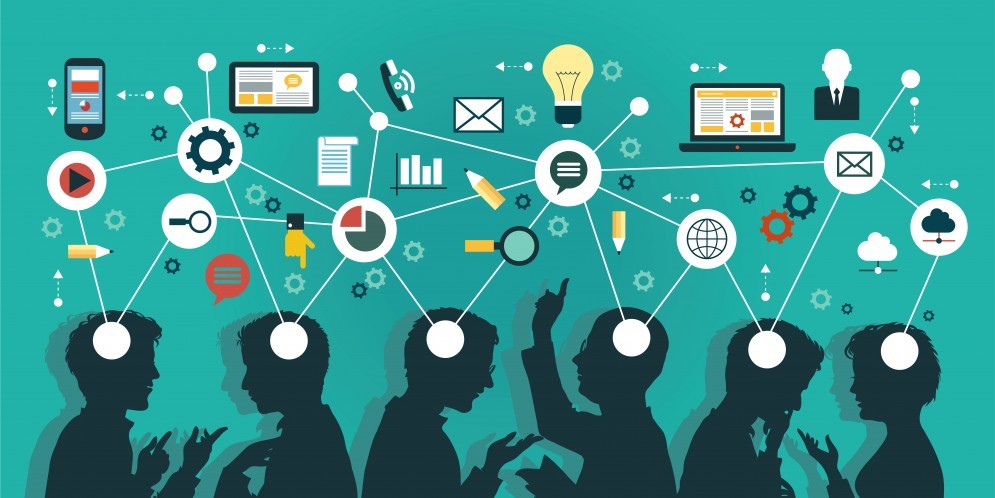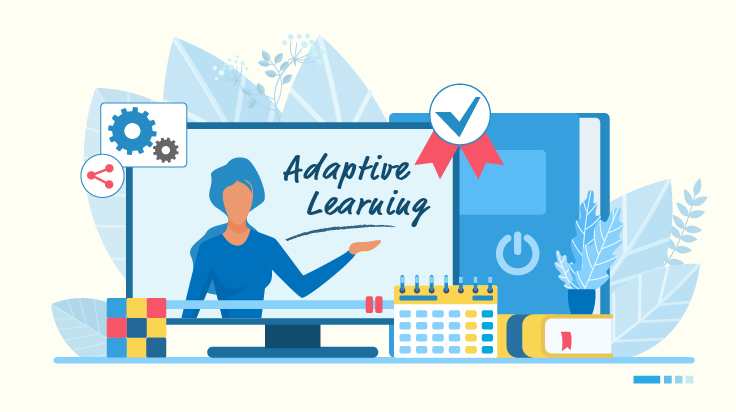Improving ROI on Training Investments with Adaptive Learning
In today’s fast-paced business environment, investing in employee training is crucial, yet traditional methods often fail to deliver adequate ROI. Adaptive learning offers a personalized approach that allows individuals to master skills at their own pace.
With adaptive learning, companies can unlock their workforce’s potential and enhance the effectiveness of their training investments.
- Adaptive learning customizes training experiences to suit employees' unique needs, learning pace, and style.
- It enhances knowledge retention by focusing on areas where employees need the most help while increasing employee engagement through tailored content.
- As a result, companies see a stronger return on investment (ROI) on their training expenditure, with employees becoming more skilled and productive.
- PathBuilder by Makarius Smart Learning stands out as a top adaptive learning platform, offering cutting-edge tools and insights to help organizations optimize their training programs.
By the time you finish reading this, another 10,000 employees will have participated in adaptive learning.
What is Adaptive Learning?
Adaptive learning is a transformative training approach that personalizes education, much like a personal tutor. Leveraging AI customizes the learning journey by analyzing individual performance, thus enhancing knowledge retention and boosting motivation.
- Personalized Guidance: It functions like a personal tutor, providing customized support and feedback tailored to each learner's unique needs and pace throughout the learning process, ensuring no one is left behind.
- Dynamic Curriculum: Unlike traditional educational methods, this approach leverages AI technology to adjust the learning path based on individual performance dynamically. It challenges learners continuously, adapting to their progress without overwhelming them.
- Real-Time Monitoring: It continuously evaluates understanding, offering immediate insights and adjustments to the learning journey. This real-time feedback loop helps learners quickly address areas of difficulty and solidifies their path to mastery.
- Enhanced Engagement: Focusing on learners' needs and interests significantly boosts motivation and engagement.
- Improved Retention: The customization inherent in personalized learning leads to better knowledge retention. When learners can relate to the material personally and receive instruction that resonates with them, the likelihood of retaining information increases dramatically.
How Adaptive Learning Improves Knowledge Retention and Employee Engagement

Traditional training often suffers from a “one-size-fits-all” approach that fails to cater to individual learning styles and paces. It can lead to disengagement, boredom, and poor knowledge retention. Adaptive learning addresses these challenges by providing:
Personalized Learning Paths
With a personalized approach to employee development, each team member embarks on a learning journey tailored to their unique strengths and weaknesses. It ensures everyone can maximize their potential and contribute effectively to the organization’s goals.
- Individual Assessment: Begin with a comprehensive evaluation to identify personal strengths and areas for improvement.
- Tailored Content: It has access to learning materials and resources customized to meet specific development needs.
- Progress Tracking: Monitor growth and achievements with regular feedback and assessments.
- Flexible Learning: Engage with content at your own pace, fitting learning into your schedule.
- Skill Enhancement: Focus on building skills aligning with personal career goals and organizational objectives.
Targeted Content Delivery
The platform enhances learning by presenting relevant information, helping learners remain focused and engaged throughout their educational journey.
- Relevance: It ensures learners are exposed to the most pertinent information by prioritizing essential content.
- Focus: Helps maintain learner concentration by minimizing distractions and highlighting key topics.
- Engagement: Encourages active participation and interest through a streamlined presentation of material.
- Efficiency: Saves time by delivering concise and impactful content, improving the learning experience.
Continuous Feedback and Support
Description: Providing real-time feedback and personalized guidance can significantly enhance employee performance by pinpointing areas for improvement and maintaining motivation.
- Immediate Insights: Employees receive instant feedback, allowing them to make timely adjustments.
- Targeted Development: Personalized guidance helps employees focus on specific areas needing improvement.
- Increased Motivation: Continuous feedback keeps employees engaged and motivated to achieve their goals.
- Enhanced Performance: Regular feedback leads to improved skills and overall job performance.
Gamified Learning
Adaptive learning platforms use gamification in learning to make education more interactive and enjoyable. These platforms encourage learners to keep learning by incorporating game-like elements.
- Points System: Learners earn points for completing tasks or reaching milestones, providing a sense of achievement and progress.
- Badges: Rewards in the form of badges are given for specific accomplishments, promoting goal-setting and motivation.
- Leaderboards: Competitive elements allow learners to see how they rank against peers, encouraging friendly competition and engagement.
- Interactive Gameplay: Engaging scenarios and challenges are embedded into lessons to maintain interest and facilitate active learning.
- Personalized Feedback: Immediate and tailored feedback helps learners understand their strengths and areas for improvement.
Adaptive learning significantly improves knowledge retention and employee engagement by creating a more engaging and personalized learning experience.
Examples of How Adaptive Learning Improves ROI
Adaptive learning systems have shown improved ROI for organizations using them. By customizing learning to meet individual needs, these systems make training more efficient and effective, cutting down on extra training time and resources. Adaptive learning is applied across various training scenarios to enhance ROI. Here are a few examples:
- Onboarding New Employees: Adaptive learning can accelerate onboarding by quickly identifying knowledge gaps and providing targeted training.
- Upskilling and Reskilling: Adaptive learning helps employees acquire new skills and stay ahead of the curve as technology evolves.
- Compliance Training: Adaptive learning ensures employees thoroughly understand and retain critical compliance information.
- Sales training: It's a personalized learning path to help sales teams effectively master product knowledge and selling techniques.
By improving knowledge retention and employee engagement, adaptive learning leads to better on-the-job performance, reduced errors, and increased productivity—all of which contribute to a stronger ROI.
Real-World Success Stories: Adaptive Learning in Action
Adaptive learning isn’t just a theoretical concept; it’s delivering real results for organizations across various industries. Here are a few examples of how companies have leveraged adaptive learning to improve their training ROI:
- IBM: IBM implemented an adaptive learning program for its sales team, resulting in a 15% increase in sales compared to those who received traditional training. The personalized learning paths helped sales representatives quickly master product knowledge and selling techniques, leading to improved performance and increased revenue.
- Accenture: Accenture used adaptive learning to onboard new employees more efficiently. Identifying individual knowledge gaps and providing targeted training reduced onboarding time by 30%. It allowed new hires to become productive more quickly, saving the company time and resources
- KPMG: KPMG adopted adaptive learning for its cybersecurity training program. The personalized approach ensured that employees thoroughly understood and retained critical security information. It led to a significant reduction in security breaches and improved overall compliance.
- Duolingo: While not a corporate example, Duolingo's success demonstrates the power of adaptive learning for language acquisition. The platform's personalized lessons and gamified approach have helped millions of users learn new languages effectively. It demonstrates the broad applicability of adaptive learning across different learning contexts.
These success stories highlight the tangible benefits of adaptive learning. By tailoring the learning experience to individual needs, organizations can significantly improve employee performance, productivity, and ROI.
Challenges of Implementing Adaptive Learning and Their Solutions
While adaptive learning has proven effective for improving ROI, organizations may need help implementing this technology. Here are a few common challenges and potential solutions:
- Resistance to Change: Some employees may need help using new technology or adapting to a personalized learning approach. To address this, organizations can provide thorough training and support for employees as they transition to adaptive learning.
- Lack of Access to Technology: In some cases, employees may need access to the necessary devices or internet connection for adaptive learning. Organizations can address this by providing access to technology or utilizing offline options such as mobile apps or printed materials.
- Data Privacy Concerns: Organizations using adaptive learning platforms must ensure data privacy by following strict security measures and data protection regulations.
- Limited Content Availability: Another challenge may be finding high-quality content adaptable to employees' learning needs. Organizations can work with learning and development experts to overcome this or invest in creating their adaptive content.
- Cost: Implementing an adaptive learning program may require an initial investment in technology and resources. However, organizations can mitigate these costs using open-source platforms or partnering with affordable vendors.
The Future of Adaptive Learning

As technology advances and workplace dynamics shift, the future of adaptive learning looks promising. Here are some potential developments to keep an eye on:
- Artificial intelligence (AI) integration: AI technology can enhance adaptive learning by analyzing user data and providing personalized learning materials and activity recommendations.
- Virtual reality (VR) and augmented reality (AR): These technologies can create immersive learning experiences that cater to different learning styles.
- Microlearning: As attention spans decrease, microlearning - or short bursts of targeted learning content - is becoming increasingly popular. Adaptive microlearning could further personalize the learning experience for employees.
- Gamification: Adding game-like elements, such as points and rewards, to adaptive learning programs can increase employee engagement and motivation.
- Personalized learning paths: With the help of AI and user data, adaptive learning could potentially develop personalized learning paths for each employee based on their strengths and weaknesses.
Choosing the Right Adaptive Learning Platform: Key Considerations

With the growing popularity of adaptive learning, numerous platforms are available, each with unique features and capabilities. Selecting the right platform for your organization is crucial to maximize your ROI. Here are some essential factors to consider:
1. Ease of Use and Integration
An ideal adaptive learning platform should be intuitive and user-friendly, facilitating a seamless experience for administrators and users.
- Intuitive Interface: Choose a platform with a user-friendly interface that is easy for learners and administrators to navigate.
- Seamless Integration: Ensure the platform integrates smoothly with your existing learning management system (LMS) and other relevant systems to avoid compatibility issues and streamline data transfer.
2. Content Library and Customization
A robust content library and customization options are pivotal when selecting an adaptive learning platform.
- Relevant Content: Look for a platform with a comprehensive content library that aligns with your training needs.
- Customization Options: Ensure the platform allows you to customize existing content or create your own to meet specific learning objectives and cater to different roles and skill levels.
3. Reporting and Analytics
Analytics plays a crucial role in measuring the effectiveness of your training programs. A good adaptive learning platform should provide detailed reports and insights to track learner progress and identify areas for improvement.
- Real-time Reporting: Choose a real-time reporting platform that allows you to monitor learner performance continuously.
- Insightful Analytics: Look for platforms with advanced analytics features such as predictive modeling and data visualization to gain actionable insights from the collected data.
4. Vendor Support and Training
Vendor support is essential when implementing a new learning platform. Ensure the vendor provides comprehensive training and ongoing technical support to troubleshoot any issues that may arise.
- Training Programs: Choose a vendor who offers thorough training programs for administrators and users to maximize the benefits of the adaptive learning platform.
- 24/7 Technical Support: Ensure the vendor provides 24/7 technical support, including troubleshooting, maintenance, and upgrades.
5. Scalability and Future-proofing
Selecting an adaptive learning platform with scalability in mind will save you time and resources in the long run. Look for platforms that can accommodate future growth and evolving training needs.
- Cloud-based Platform: Consider a cloud-based adaptive learning platform that can easily scale to accommodate a growing number of learners and content.
- Customization Options: Choose a platform that allows customization, including branding, to meet your organization's unique needs and future requirements.
By carefully evaluating these factors, you can choose an adaptive learning platform that meets your organization’s unique needs and helps you achieve your training goals.
Final Thoughts
Adaptive learning is a game-changer for organizations seeking to maximize the impact of their training investments. Adaptive learning unlocks their full potential and drives business success by personalizing the learning journey and empowering employees to achieve mastery at their own pace.
So, what are your next steps?
- Explore the benefits of adaptive learning for your organization, such as increased engagement, improved knowledge retention, and a tailored learning experience that meets the unique needs of each individual.
- Consider implementing an adaptive learning platform like PathBuilder, which offers customizable content, real-time feedback, and analytics to track progress and identify areas for improvement.
- Embrace the future of personalized learning and development, enabling your team to reach their full potential and stay competitive in a rapidly changing business environment.
Ready to revolutionize your training programs and improve your ROI? Book a demo of PathBuilder today and discover the power of adaptive learning.
Author
-

The PathBuilder team is a dynamic group of dedicated professionals passionate about transforming education through adaptive learning technology. With expertise spanning curriculum design, AI-driven personalization, and platform development, the team works tirelessly to create unique learning pathways tailored to every student’s needs. Their commitment to educational innovation and student success drives PathBuilder’s mission to redefine how people learn and grow in a rapidly changing world.
View all posts

















The PathBuilder team is a dynamic group of dedicated professionals passionate about transforming education through adaptive learning technology. With expertise spanning curriculum design, AI-driven personalization, and platform development, the team works tirelessly to create unique learning pathways tailored to every student’s needs. Their commitment to educational innovation and student success drives PathBuilder’s mission to redefine how people learn and grow in a rapidly changing world.